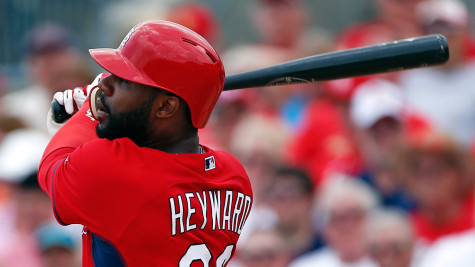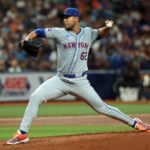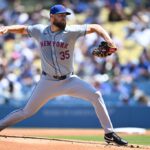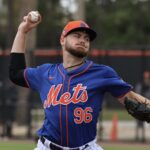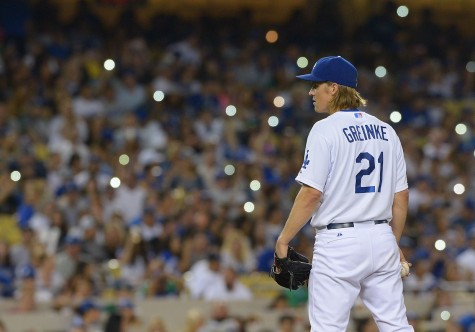
First and foremost, I’d like to say it has been a wonderful year reading and discussing Mets baseball with all of you here at MMO. It has been an incredible season of roller-coaster emotions and we could sure use some time to unwind and be productive. However, if you can’t find the willpower to distance yourself from baseball talk, then I welcome you to join me in the following offseason analysis.
Offseason Winners From The Media’s Perspective
Every single year, the media seemingly declares the winners of the of the offseason based on acquisition of big name stars. The Angels “won” the offseason in 2011 and 2012 when they signed Albert Pujols and Josh Hamilton. The Padres “won” the offseason this year by acquiring Matt Kemp, Justin Upton and Craig Kimbrel. Yet, it always seemed to me that many of the big name players who are signed or traded for end up performing quite poorly for their new club.
So I decided to look further into this and conducted a brief analysis of player performance before and after they sign a free agent contract since 2012. My goal was to come up with some data that can tell me if players do tend to regress after free agency or if it only appears so because we only hear and talk about the ones who play poorly.
The criteria for the analysis is as follows:
Compare fWAR (Fangraphs Wins Above Replacement) for 3 years prior to free agency to up to 3 years after free agency. For example, Zack Greinke signed his deal after the 2012 season so I compared his 2010-2012 WAR with his 2013-2015 WAR. Max Scherzer signed after the 2014 season, so I compared his 2012-2014 WAR to his 2015 WAR.
The player must sign for a contract length minimum of 3 years with an average annual value (AAV) of $10M/year or more. For more information on WAR, you can visit the FanGraphs information page. In short, the average MLB player puts up about 2-3 WAR at his position.
The chart below outlines average WAR and total WAR which are pretty self explanatory. One additional metric I thought would be interesting to look at was how much a team expected to pay per WAR as opposed to how much they actually received. Using Melvin Upton as an example, the Atlanta Braves signed him for 5 years/$75M at $15M/year. Since his pre free agency AVG WAR per year was 3.6, his M/WAR is $15M divided by 3.6 WAR which equals $4.2M/WAR. However, in the 3 years since his signing, he has posted 0.4 AVG WAR per year so the Braves are actually paying him $37.5M per WAR.
| Pre Free Agency | Post Free Agency | ||||||
| Player | FA Year | AVG WAR | TOT WAR | M/WAR | AVG WAR | TOT WAR | M/WAR |
| Zack Greinke | 2012 | 4.5 | 13.5 | 5.4 | 4.6 | 13.8 | 5.3 |
| Josh Hamilton | 2012 | 5.6 | 16.8 | 4.4 | 1.1 | 3.3 | 22.4 |
| Anibal Sanchez | 2012 | 3.7 | 11.1 | 4.3 | 3.4 | 10.2 | 4.7 |
| Melvin Upton | 2012 | 3.6 | 10.8 | 4.2 | 0.4 | 1.2 | 37.5 |
| Nick Swisher | 2012 | 3.9 | 11.7 | 3.6 | -0.2 | -0.6 | Negative |
| Edwin Jackson | 2012 | 2.9 | 8.7 | 4.5 | 0.8 | 2.4 | 16.3 |
| Michael Bourn | 2012 | 3.8 | 11.4 | 3.2 | 0.7 | 2.1 | 17.1 |
| Angel Pagan | 2012 | 3.5 | 10.5 | 2.9 | 0.9 | 2.7 | 11.1 |
| Shane Victorino | 2012 | 4.3 | 12.9 | 3.0 | 2.0 | 6.0 | 6.5 |
| Robinson Cano | 2013 | 6.2 | 18.6 | 3.9 | 3.7 | 7.4 | 6.5 |
| Jacoby Ellsbury | 2013 | 5.4 | 16.2 | 4.0 | 2.5 | 5.0 | 8.7 |
| Shin Soo Choo | 2013 | 3.1 | 9.3 | 6.0 | 1.8 | 3.6 | 10.3 |
| Hunter Pence | 2013 | 3.8 | 11.4 | 4.7 | 3.2 | 6.3 | 5.6 |
| Brian McCann | 2013 | 2.7 | 8.1 | 6.3 | 2.7 | 5.4 | 6.3 |
| Curtis Granderson | 2013 | 3.7 | 11.1 | 4.1 | 3.2 | 6.4 | 4.7 |
| Jhonny Peralta | 2013 | 3.6 | 10.8 | 3.7 | 3.5 | 7.0 | 3.8 |
| Matt Garza | 2013 | 2.6 | 7.8 | 4.8 | 1.7 | 3.4 | 7.4 |
| Ricky Nolasco | 2013 | 2.8 | 8.4 | 4.4 | 0.8 | 1.6 | 15.3 |
| Ubaldo Jimeniz | 2013 | 2.3 | 6.9 | 5.2 | 1.6 | 3.2 | 7.5 |
| Carlos Beltran | 2013 | 3.2 | 9.6 | 4.7 | 0.6 | 1.2 | 25.0 |
| Mike Napoli | 2013 | 3.8 | 11.4 | 2.8 | 1.6 | 3.2 | 6.7 |
| Scott Feldman | 2013 | 3.4 | 10.2 | 2.9 | 1.3 | 2.6 | 7.7 |
| Max Scherzer | 2014 | 5.2 | 15.6 | 5.8 | 6.4 | 6.4 | 4.7 |
| Jon Lester | 2014 | 3.8 | 11.4 | 6.8 | 5.0 | 5.0 | 5.2 |
| Pablo Sandoval | 2014 | 2.6 | 7.8 | 7.3 | -0.2 | -0.2 | Negative |
| Hanley Ramirez | 2014 | 3.7 | 11.1 | 5.9 | -1.8 | -1.8 | Negative |
| Russell Martin | 2014 | 3.7 | 11.1 | 4.4 | 3.5 | 3.5 | 4.7 |
| James Shields | 2014 | 3.8 | 11.4 | 4.9 | 1.1 | 1.1 | 17.0 |
| Victor Martinez | 2014 | 1.7 | 5.1 | 10.0 | -2.0 | -2.0 | Negative |
| Nelson Cruz | 2014 | 2.0 | 6.0 | 7.1 | 4.8 | 4.8 | 3.0 |
| Ervin Santana | 2014 | 1.5 | 4.5 | 9.2 | 1.4 | 1.4 | 9.8 |
| JJ Hardy | 2014 | 2.9 | 8.7 | 4.7 | 0.0 | 0.0 | Infinite |
| Chase Headley | 2014 | 5.1 | 15.3 | 2.5 | 1.5 | 1.5 | 8.7 |
| Brandon McCarthy | 2014 | 2.1 | 6.3 | 5.7 | -0.1 | -0.1 | Negative |
| David Robertson | 2014 | 1.6 | 4.8 | 7.2 | 1.9 | 1.9 | 6.1 |
| Nick Markakis | 2014 | 1.3 | 3.9 | 8.5 | 1.6 | 1.6 | 6.9 |
| Melky Cabrera | 2014 | 3.1 | 9.3 | 4.5 | -0.3 | -0.3 | Negative |
| Francisco Liriano | 2014 | 2.2 | 6.6 | 5.9 | 3.6 | 3.6 | 3.6 |
| Billy Butler | 2014 | 0.9 | 2.7 | 11.1 | -0.7 | -0.7 | Negative |
| Total | 3.3 | 388.8 | 5.1 | 1.8 | 123.1 | 9.6 | |
Download Full Excel File With Player Salaries & Additional Notes
What we see from this group here is that these free agents posted an average of 3.3 WAR in their 3 years prior to free agency compared to an average of 1.8 WAR after they sign a deal. Their performance is reduced by nearly 50%, which takes them as a group from being above average players to below average players. Furthermore, teams may have been expecting to pay an average of $5.1M per WAR for pre FA performance but instead paid an average of $9.6M per WAR for post FA performance.
So the results here are pretty conclusive in showing a drop in player production after a free agent signs a contract and my hunch is that if we expanded this analysis to include free agents from other years, we would find similar results. But why does this happen and what causes a free agent’s performance to drop so significantly?
Age
The most significant factor is likely to be age. Most free agents sign their contracts in their late 20s or early 30s and unless your name is RA Dickey, players simply decline in performance after age 30. They lose speed, power and are more prone to injury. This is why in comparison to players who sign extensions in their early or mid 20s and continue to perform at expectation, these older free agents usually fail to achieve similar success.
Environment
We often look at baseball players as pieces to a team but it is easy to forget that these guys are just as human as the fans who root for them. When a player changes teams, they have to move their family, buy a new house, look for new schools for their kids, etc. They also have to adjust to a completely new work environment, make new friends on the team and communicate with new coaches.
All of this can be very taxing on an athlete whose previous primary concern was getting ready for a game. Now throw in the added pressure of having to perform to justify their new contract and it could significantly affect their play on the field.
Incentive
Last but not least, once a player gets his payday, the less motivated ones may take their foot off the pedal and stop working as hard as they did before. We often see players have breakout and career years right before free agency and this change in level of motivation may contribute to subpar performances after they sign a contract.
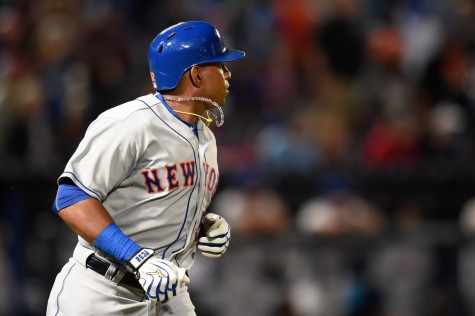
How This Impacts The Mets
The Mets have two very interesting free agents this offseason which are cases that are unlike the common ones.
Yoenis Cespedes was obtained in late July and immediately made his presence felt with an incredible hot streak that led the Mets to a 20-8 record in August and a division lead. Out of all free agents in recent years, I believe Shin Shoo Choo and Hunter Pence are the most comparable player value wise to Cespedes.
Choo put up 20.2 WAR in his 5 years (4.0 WAR/yr) leading up to free agency at age 31 while Cespedes put up 15.4 WAR (3.9 WAR/yr) in his 4 years in the big leagues who is now age 30. Furthermore, both profile as a tweener OFer, capable of playing CF but probably better off in LF. Meanwhile, Hunter Pence put up 11.4 WAR in his 3 years (3.8 WAR/yr) leading up to free agency at age 31.
Since Choo received a 7 year/$130M deal and Pence received a 5 year/$90M extension, I would estimate that Cespedes will receive a comparable offer in that ballpark.
While many including myself originally estimated that his price will go as high as 7 years/$175M, I believe that was due to viewing his performance through a honeymoon period as he kept blasting HRs and propelled the Mets into 1st place. After evaluating his figures further, we see that Cespedes put up a career high 6.7 WAR between Detroit and New York this year, a huge spike from his 2.9 WAR from 2012-2014. Additionally, Steamer projections have him regressing back to 2.8 WAR in 2016, essentially a slightly above average major league player.
Murphy, on the other hand, put up numbers similar to his career line but had a historic postseason. Most writers had believed the Mets would not offer him a qualifying offer of $15.8M and he would end up with a contract of about 4 years/$40M. However, with his postseason performance, the Mets are almost certainly going to extend the qualifying offer now while the jump in his price will be harder to predict.
Fans may be fond of both players at the moment. However, as history has shown with free agents, they don’t tend to play up to their expectations and it is important that both the front office and the fans have a realistic outlook of what to expect from Cespedes and Murphy moving forward. Both are certainly crucial pieces to the Mets playoff team and all angles must be considered, just do so with lenses that are not fogged up by a recent sample size.
Prediction
I believe that as much as Cespedes contributed to the Mets playoff push, he will receive an offer from another team that far trumps what the Mets front office believes he is worth moving forward. I see the Mets topping out at 6 years/$120M (6th year as a vesting or team option) and Cespedes getting a 7 year/$140M deal (7th year as a vesting or team option).
With the emergence of Conforto, the resurgence of Granderson as well as the insurance of Nimmo in Triple A, I believe the Mets will feel comfortable enough in the OF to let Cespedes walk.
As for Murphy, most reports from insiders believe the Mets have no intentions of signing him to a multi year contract. Personally, I do not see much downside in re-signing him for depth and for insurance. Even in the worst case scenario that Murph regresses a little, perhaps to a .260 hitter, he can still be used as a part time player in his later years. On the flipside, if we let him walk and David Wright has a season ending injury or Dilson Herrera is hitting .240 in June, what would we do then? Which worse case scenario do you prefer?
I hope the Mets front office comes around and gives him a 5 year/$50M extension, with the 5th year as a vesting option or a team option with a buyout. While this could well end up being an overpay for Murphy, this is the type of contract that can be traded if necessary and still manageable so that it won’t cripple a team’s ability to make other moves.
The backlash of losing both Cespedes and Murphy from the fans would be tremendous so in that regard, I do believe the Mets will re-sign one of the two and my personal preference for reasons stated above would be Daniel Murphy.


